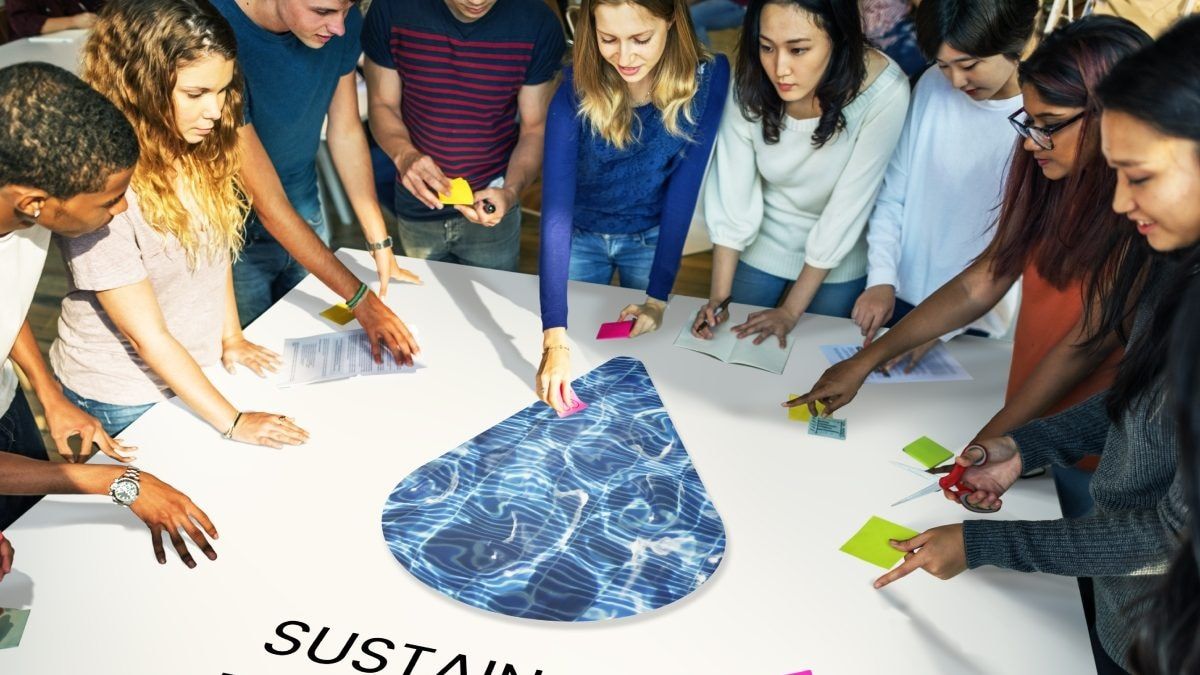Their commitment to sustainability not only enhances the value of their products but also supports a greener and more responsible future.
By prioritizing eco-friendly materials, ethical production methods, and innovative practices, these brands are setting new standards in the industry.
In today’s world, where environmental concerns are becoming increasingly important, the challenge of balancing sustainability with luxury has become a focus for many brands. Here’s a look at how three industry leaders are redefining luxury through eco-friendly practices and sustainable initiatives.
Redefining luxury with sustainability
Aditi Murarka and Anurag Agrawal, the visionaries behind Nestasia, are dedicated to proving that high-end décor can be luxurious and sustainable at the same time. “Nestasia is dedicated to redefining luxury with sustainability. Our range, from ceramic tableware to furniture, embraces eco-friendly materials and ethical craftsmanship, proving that high-end décor can also be kind to the planet,” they explain. As a home décor brand, Nestasia’s commitment to sustainability is reflected in its use of eco-friendly materials and sustainable practices.
Their diverse product range, which includes decorative metal items, glass products, upholstery and soy wax candles, reflects their philosophy of combining aesthetic appeal with eco-friendly practices. By prioritizing sustainable materials and ethical production methods, Nestasia ensures that each piece not only enhances homes but also contributes to a greener world.
Their commitment extends to their packaging as well. “We use eco-friendly materials that minimise environmental impact and meticulously design packaging to perfectly fit each product, thereby reducing excess waste,” the founders add. By repurposing fabric scraps as filler, they turn what would otherwise be thrown away into practical and sustainable packaging solutions. This holistic approach reflects Nestasia’s unwavering dedication to innovative and responsible practices.
Setting standards in the eco-luxury industry
Ashutosh Pandey, Co-Founder, Life n Colours Pvt Ltd, believes that integrating sustainability into business practices is both a moral obligation and a sound business strategy. “Environmental sustainability is central to our goals and we have implemented several key initiatives to achieve this,” he says. These initiatives include using eco-friendly and non-toxic raw materials, incorporating PVC-free paper and water-based inks in their products, and offsetting energy-related carbon emissions through carbon credits, making them the world’s first and only carbon-neutral home décor company.
Life n Colors is also actively educating its customers about climate change and sustainability to encourage conscious choices. “By 2024, we are committed to reducing paper and plastic waste across our supply chain by expanding recycling programs and carbon offset projects,” notes Pandey. Their goal is to set industry standards and lead in eco-luxury design, where every product tells a story of elegance and environmental responsibility. Customers appreciate the added value of sustainability in their luxury purchases, and this is reflected in their willingness to invest more in such products.
Bridging the gap between indulgence and responsibility
Kaniisha Chamarria, Marketing Consultant at Indulge Global, highlights the importance of combining luxury with sustainability in a genuine way. “Our customers care deeply about the environment, and so do we,” she says. This commitment is evident in their partnership with Swadesh, Nita Ambani’s company, which helps them offer eco-friendly and beautifully crafted gifts for special occasions like Mother’s Day.
“It’s about making sustainable choices easy and accessible, while still offering the luxury our customers expect,” explains Chamarria. In this way, Indulge Global bridges the gap between luxury and responsibility, proving that it is possible to celebrate and care for the planet at the same time.
These efforts demonstrate how luxury and sustainability can coexist in harmony. By prioritizing eco-friendly materials, ethical production methods, and innovative practices, these brands are setting new standards in the industry. Their commitment to sustainability not only enhances the value of their products, but also supports a greener, more responsible future.












